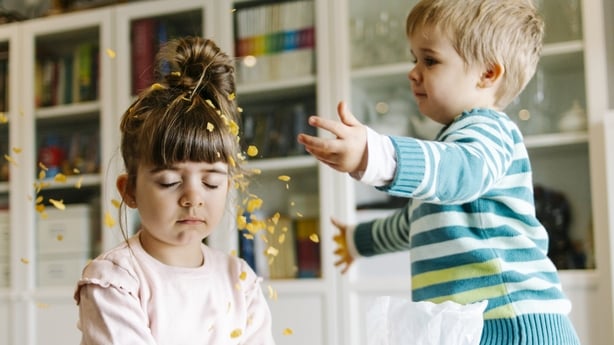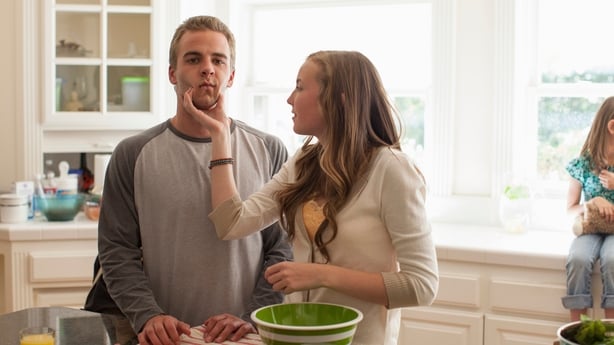As the Gallagher brothers announce their band's long-awaited reunion, clinical pscyhologist Niamh Delmar shares her guide to coping with sibling rivalry.
Having siblings plays a role in a child's development - for better or worse. Healthy sibling conflict is a normal part of childhood, with arguments and competitiveness often featuring. It is not always a close or healthy bond.
Studies show that, in reality, approximately half of siblings communicate with each other once a month, with the other half less frequently, or not at all. Sibling tension usually emerges at around the age of three, and can prevail throughout adulthood.
In early childhood, sibling relations are emotionally charged with vast amounts of time being spent together. Unlike friendships, these bonds are non-elective and hierarchical. The sibling dynamic can provide opportunity for support, play and prosocial behaviour. Conflict resolution skills and emotional regulation. However in adverse environments, it can also facilitate aggression, bullying and abuse.

In family environments, people pick up from a young age if there is favouritism, and internalise messages received. There may be a scramble for parental attention. Siblings often experience parents differently. There may be low level parental involvement.
Age, personality and shared interests all influence the quality of sibling relationships, with the parent-child bond being the most significant predictor. Family trauma is also a contributing factor to sibling rifts and estrangement. Prolonged disconnection experienced in childhood can be a risk factor to shut down and isolate from family later in life. Inadequate role modelling of healthy communication and an argumentative background can initiate tensions among adult siblings.
Different values and lifestyles also lead to rifts or rejection. Jealousy among siblings, when older, tend to be about success, intellect and appearance. Religious beliefs, political affiliations, conservatism or liberalism can fracture bonds, or a partner may not be approved of.

Addiction or aggression can also alienate individuals from their sisters or brothers. Money is also a contributing factor with fall- oust over loans, inheritance or a family business. Parental care of elderly parents are often contentious familial issues. Deep embedded bitterness may arise if one sibling feels it all lands on their shoulders.
Recent studies have found that the quality of sibling relationships have an impact on mental health. Positive bonds have been found to reduce the risk of depression and loneliness, and contributes to better mental health in middle age. Unhealthy sibling relationships are associated with higher levels of distress up to retirement age.
Conflict among siblings in adolescence has been linked to poor mental and physical health.

Tips for coping
Adult sibling conflict not only impacts the individuals involved, but the entire family system. If parents are favouring another sibling, see it for what it is, express the effect it is having on you then take a step back and protect yourself. Sometimes it may just be that the other sibling has more in common with the parent, or they just click.
If sibling tension is on-going, you need to set healthier boundaries. Find a position for that sibling. It does not have to be in your inner circle. It could involve meeting up now and then, a certain level of conversation and a healthy distance.
Have realistic expectations of the person. Wishing it was a close bond and pining for what is not there adds to distress. Try not to add any more damage to the bond with arguments and insults. Stay in the adult and don't get sucked back in to childish territory.

Unless there has been an extreme history, avoid a 'right versus wrong stance' and demonising the person. Try to see what hurt and anger may be with them. Interpretations often get distorted.
Obsessively thinking and talking about it is not productive. If time has gone by, it will only shift when someone makes a move or a gesture. Focus on the close people in your life, and keep working on yourself.
Self -awareness and development benefit all relationships. If it feels all consuming and overwhelming, talk it through with a therapist who can empathise and challenge. Family therapy may be appropriate.
Accountability is necessary for healing hurts. If it is salvageable, and you want to repair a relationship with a sibling, see it as a process, and take that first step.
If you have been affected by issues raised in this story, please visit: www.rte.ie/helplines.
The views expressed here are those of the author and do not represent or reflect the views of RTÉ.


